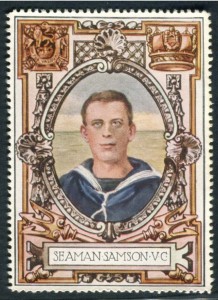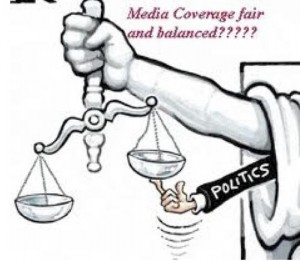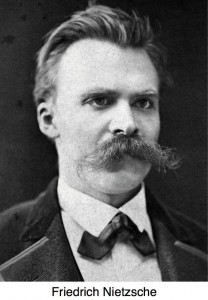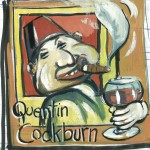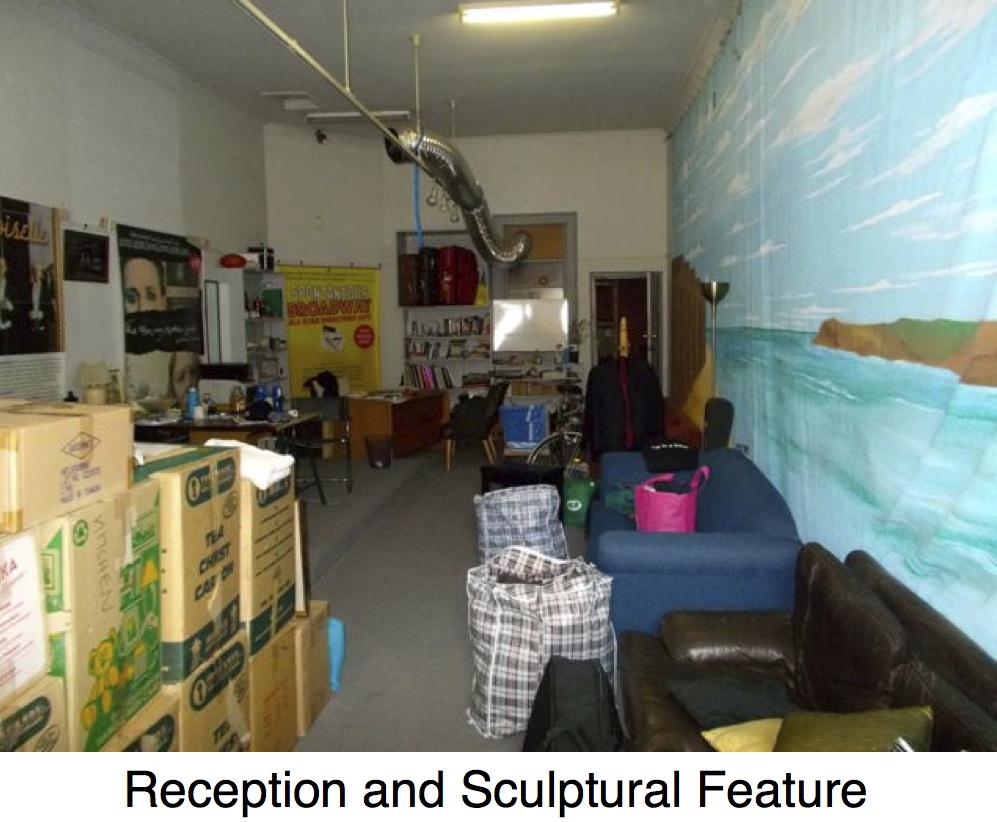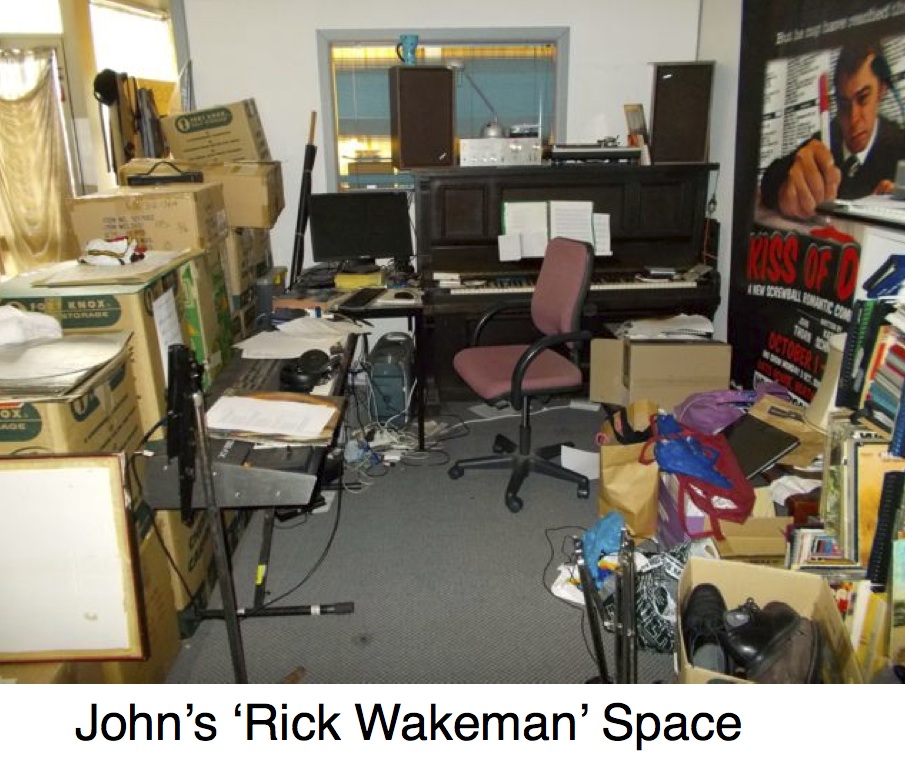With its budget, the Abbott government has made clear what it means by Indigenous ‘advancement’: fewer services, and more funding for lockups by Amy McQuire
first published Thursday 15 May 2014 theguardian.com
His offence? Police had caught him out on the streets late at night, in breach of his bail conditions, and had thrown him in the watchhouse in the early hours of the morning. The reason he was out on the streets? It was safer than being at home. The magistrate didn’t want to send him back to his family, but with no other option, he was leaning towards placing him on remand as he waited for a court date.
It’s a common situation. About 80% of young people in custody on remand don’t go on to receive a custodial sentence within 12 months – meaning a large proportion of Aboriginal youth are locked up simply because there is nowhere else for them to go. Many of them have been taken from their families at rates now higher than the days of the Stolen Generations.
The distressing number of Aboriginal children in juvenile detention is a consequence of a complex mix of factors, like poverty, the harsh realities of the NSW bail act and, I would argue, the crippling apathy of state and federal governments.
Sadly, in small towns like Bourke, the streets can be like a prison. Society builds virtual walls around you according to the circumstance of your race and geography. It’s hard to break out of these confines, and it becomes even harder if you come into contact with the justice system at an early age.
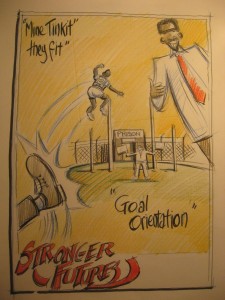 Towns with large Aboriginal populations also have a large police presence. They are meant to protect the vulnerable, but over policing only adds to the worrying rates of Indigenous incarceration. How can you achieve equality when you are locking up Aboriginal population at rates that beggar belief? Since the end of the Royal Commission into Aboriginal deaths in custody, Indigenous incarceration rates have jumped in every state and territory: 90% in the NT, 53% in NSW, and 50% in Western Australia.
Towns with large Aboriginal populations also have a large police presence. They are meant to protect the vulnerable, but over policing only adds to the worrying rates of Indigenous incarceration. How can you achieve equality when you are locking up Aboriginal population at rates that beggar belief? Since the end of the Royal Commission into Aboriginal deaths in custody, Indigenous incarceration rates have jumped in every state and territory: 90% in the NT, 53% in NSW, and 50% in Western Australia.
On Tuesday night, the scared eyes of that small 12 year old boy in Bourke were chief on my mind as I read over the budget papers, wading through doublespeak like “rationalisation”, “savings”, “efficiencies” and the most offensive of them all: “advancement”.
Aboriginal Australia anticipated a tidal wave of cuts, but seeing more than half a billion dollars ripped out from under a people who have been chronically underfunded for decades still sent shockwaves through our communities (although budget analysis shows Labor has historically been the biggest offender in underfunding Indigenous affairs if you look at total Indigenous expenditure as a percentage of total government expenditure).
We already knew the Coalition were cutting $13.4m from Aboriginal legal aid. The cuts will undeniably affect frontline services across the country, where Aboriginal people already have trouble accessing appropriate legal aid. Any hit to already underfunded services drip down to children like that 12 year old boy in Bourke.
I saw nothing addressing these distressing rates in the number tables of the budget. I saw nothing to slow the torrents of Aboriginal hurt across the country. Instead I saw this: more than $54m pumped into boosting police infrastructure in remote communities. No funding re-directed into keeping blackfellas out of jail, but more for those who will keep locking them up.
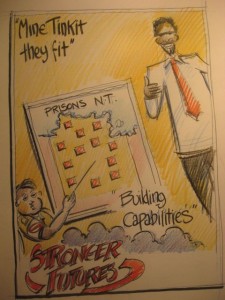 Put simply, you don’t make communities safer by locking up their men, in many cases for the “victimless crime” of driving unregistered or unlicensed. You make them safer by investing in adequate health, housing, employment and education opportunities – measures which aren’t explained in these budget papers.
Put simply, you don’t make communities safer by locking up their men, in many cases for the “victimless crime” of driving unregistered or unlicensed. You make them safer by investing in adequate health, housing, employment and education opportunities – measures which aren’t explained in these budget papers.
That’s just the beginning. There was no indication in the budget papers of which programs and organisations will have their funding hit by the huge cuts to health. More than $160m will be pulled from Indigenous health funding, which is not surprising, given Abbott’s track record in this area. As health minister in the Howard government, he presided over a $460m Indigenous health shortfall over a time period when Peter Costello boasted of almost $100bn in budget surpluses.
Abbott’s “new engagement” with Aboriginal people is just fluff. It’s paternalism in sheep’s clothing. If you are wondering why Aboriginal people scoff at his claims to become the prime minister for Indigenous affairs, you only have to look to 2006, when he called for a “new paternalism” to put an end to the “rhetoric of self-determination”. That assault against self-determination, against the rights of Aboriginal people to control their own lives and affairs, is in the background of any reading of these budget papers.
In a media release, Scullion talks about the government investing “$4.8bn” to streamline more than 150 individual programmes and services into the so-called Indigenous advancement strategy, “with the sole objective of achieving real results in the government’s priority areas”. That’s just it: the government’s priority areas. Not priority areas determined by Aboriginal people themselves. The Abbott government has made it clear in this budget that it will define what “advancement” means to Aboriginal people.
The decision to de-fund our only national elected Indigenous body – the national congress of Australia’s first people and replace it with the hand-picked Indigenous advisory council only adds to this narrative. The national congress isn’t Atsic, but to pull funding from our only nationally elected representative body is a disgrace.
 And if you believe Indigenous advisory council head Warren Mundine has any say over the government’s direction in Indigenous affairs, think again. It’s clear the real power lies with the Indigenous affairs minister Nigel Scullion; Mundine has already had to back down from clashes with the minister on issues like the legal aid cuts and his calls for a radical overhaul of the office of registrar of Indigenous corporations. He has also been unable to make a dent in the Coalition’s plan to repeal section 18c of the Racial Discrimination Act.
And if you believe Indigenous advisory council head Warren Mundine has any say over the government’s direction in Indigenous affairs, think again. It’s clear the real power lies with the Indigenous affairs minister Nigel Scullion; Mundine has already had to back down from clashes with the minister on issues like the legal aid cuts and his calls for a radical overhaul of the office of registrar of Indigenous corporations. He has also been unable to make a dent in the Coalition’s plan to repeal section 18c of the Racial Discrimination Act.
Mundine remains the Australian newspaper’s chief rent-a-quote, but the wages of the Indigenous advisory council would be the best budget saving the Abbott government could make in Indigenous affairs. Of course, none of this matters to Aboriginal kids like that 12 year old boy from Bourke. Most likely he will not see the “savings” and “efficiencies” boasted by the Abbott government.

